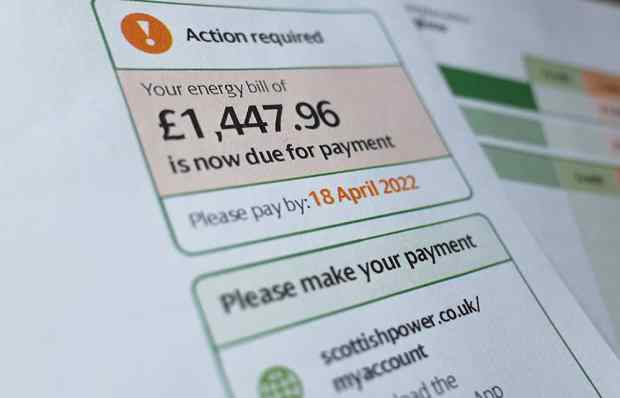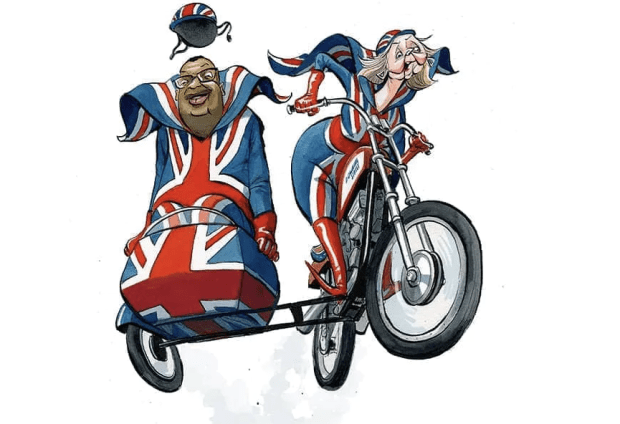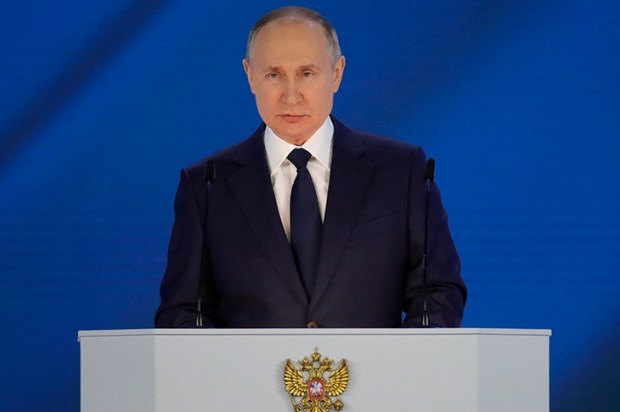Nato countries are being careful not to do anything that Russia could claim is an act of war. Just look at the reluctance from the US to provide Ukraine with Polish fighter jets. Yet Britain and other Nato members are involved in a huge effort to break Vladimir Putin’s war machine through supplying Ukraine with weapons and imposing financial pressure on Moscow. Russia, a G20 country, has been severed from the world economy. It has now surpassed Iran as the most sanctioned country on Earth and it is beginning to occupy a similar economic position.
The speed with which Russia has been hit by these economic measures has been a display of the West’s financial power. Yet western politicians now have to rally their publics to accept the cost of the sanctions. If these measures are to act as an effective form of deterrence in the future, then the free world will have to show that it is prepared to endure the economic pain that goes with them. Robert Jenrick, the 40-year-old former secretary of state for housing, this week warned voters that this could be ‘the most difficult economic year that we’ve seen in our lifetime’.
Even before the war began, energy prices were rising – a result of a lack of investment in the sector combined with the consequences of turning the world economy on and off again during the Covid pandemic. But sanctions and the possibility of either Russia imposing an oil and gas embargo, or an embargo being imposed by the West (the sanctions are currently designed to exempt oil and gas), have sent prices soaring.
Energy providers are already warning that the cap on domestic bills may rise to £3,000 come October. It is hard to see how so large an increase would not lead to a recession given the squeeze it would exert on household budgets. £3,000 might even prove to be an underestimate. Based on the movement in markets this week, the cap could go as high as £4,500, which would be a £75 billion hit to households. Some in government think that the markets will calm in time and that moving to three-monthly price caps could limit how long this squeeze goes on for. But the reality is, as one senior figure in government puts it, bills are ‘not going to fall anytime soon’.
Boris Johnson has mentioned price increases in recent speeches, but he needs to talk to the public directly about this issue to spell out just how much the rise in energy prices could cost them and why voters should be prepared to endure this pain. He must set out why, in the long term, it will be cheaper to halt Putin now. It is better to take the immediate economic hit rather than let Russia destroy Europe’s security architecture, which would ultimately lead to more violence and less prosperity.
European countries are in a desperate scramble to end their dependency on Russian oil and gas, but there is no quick fix. The EU has set out a plan to cut its use of Russian gas by two-thirds by next winter. The UK is looking again at fracking and what new oil and gas fields can be developed in the North Sea. Both approaches will take time. When the Conservatives imposed a moratorium on fracking in 2019 it wasn’t for environmental reasons but because of local opposition in Tory seats in Lancashire and Derbyshire. It remains to be seen if the rise in energy prices will make opponents to fracking change their minds, and new fields in the North Sea will take several years to produce more gas.
Germany intends to import more liquefied natural gas and invest more in renewables. But again, this approach will take time to work. When it comes to petrol, the US could try to persuade Saudi Arabia to pump more, but this is complicated by the Biden administration’s tense relationship with Mohammed bin Salman after the murder of Jamal Khashoggi. Riyadh is also suspicious that the US is about to agree to too generous terms with Iran in nuclear negotiations.
Another consequence of this war is the largest movement of people in Europe since 1945. Five million are expected to leave Ukraine. Britain’s policy is, as Kate Andrews and Max Jeffery write in our first feature, confused. Part of the problem, one government source says, is that there has been no first principles discussion of the issue in cabinet.
To make things more complicated, the policy is being run out of two departments – Priti Patel’s Home Office and Michael Gove’s levelling-up and local government department – with two very different mindsets. The Home Office is institutionally restrictive, while the levelling-up department takes a more welcoming approach. The newly appointed refugees minister Richard Harrington will sit in both departments. It remains to be seen if he can bring some clarity to the UK’s policy.
On sanctions, the government’s record is mixed. Britain led the push to cut off Russian banks from Swift, the global payments system, but it has struggled to effectively act against individual oligarchs. This is partly a problem of preparation: the government did not have its legal cases ready to go. There is also a philosophical difference between civil servants and government lawyers who see sanctions as a tool of diplomacy and MPs who want to use sanctions as a penalty. ‘Officials don’t think sanctions are there as a punishment, but that is where [politicians] are coming from’, as one close to the discussions puts it. The economic crime bill, currently being rushed through parliament, implicitly accepts the failings of the UK approach by making it easier for this country to sanction individuals who are already being punished by the US, the EU, Australia, Canada and other allies.
Putin was convinced that the West was too divided and too decadent to meaningfully respond to his actions. He underestimated the West’s unity. Now leaders must persuade their voters to accept the economic costs of stopping Putin, to show that the Kremlin also underestimated the West’s willingness to accept material pain to defend what it believes in.
Got something to add? Join the discussion and comment below.
Get 10 issues for just $10
Subscribe to The Spectator Australia today for the next 10 magazine issues, plus full online access, for just $10.
You might disagree with half of it, but you’ll enjoy reading all of it. Try your first month for free, then just $2 a week for the remainder of your first year.















Comments
Don't miss out
Join the conversation with other Spectator Australia readers. Subscribe to leave a comment.
SUBSCRIBEAlready a subscriber? Log in